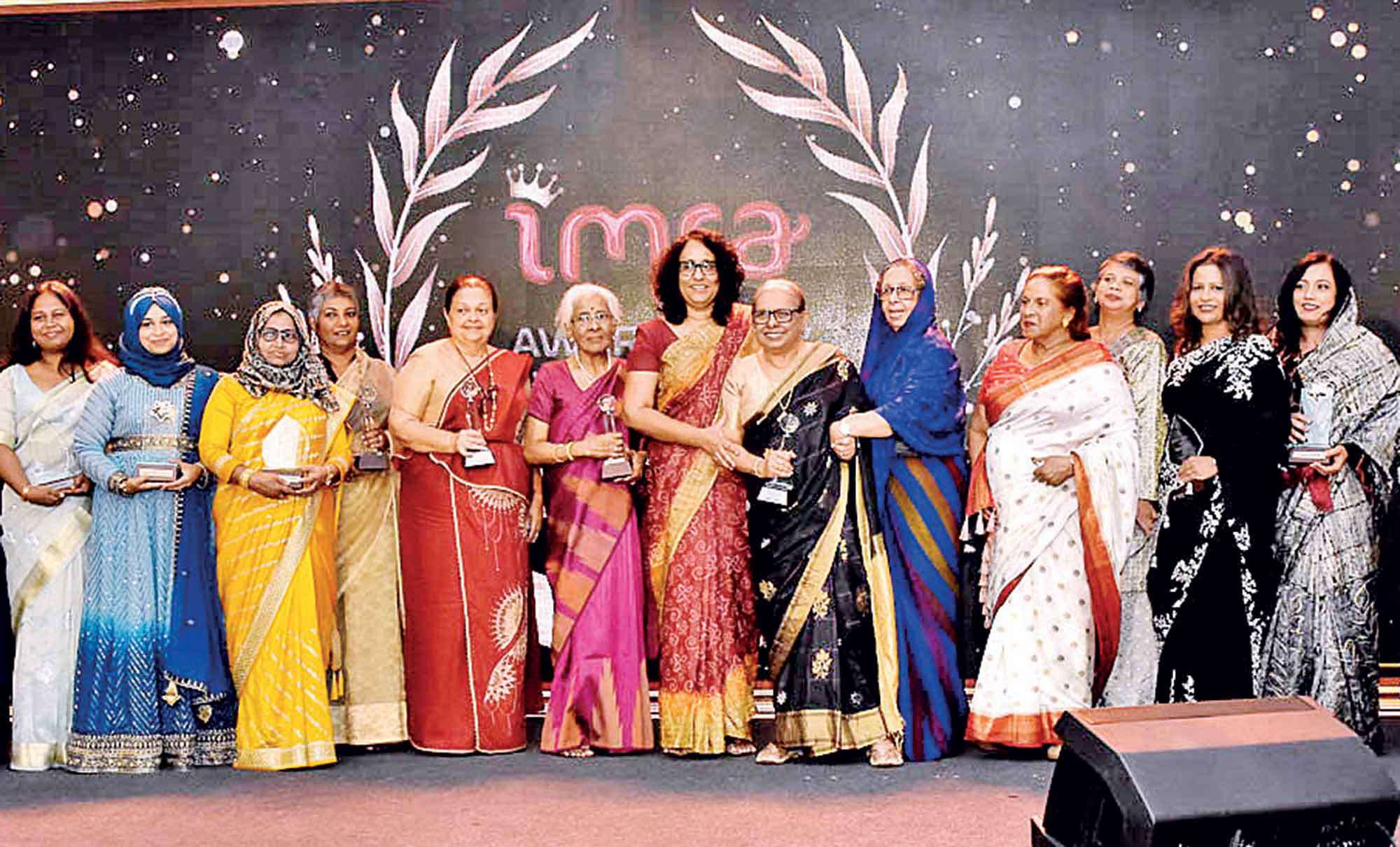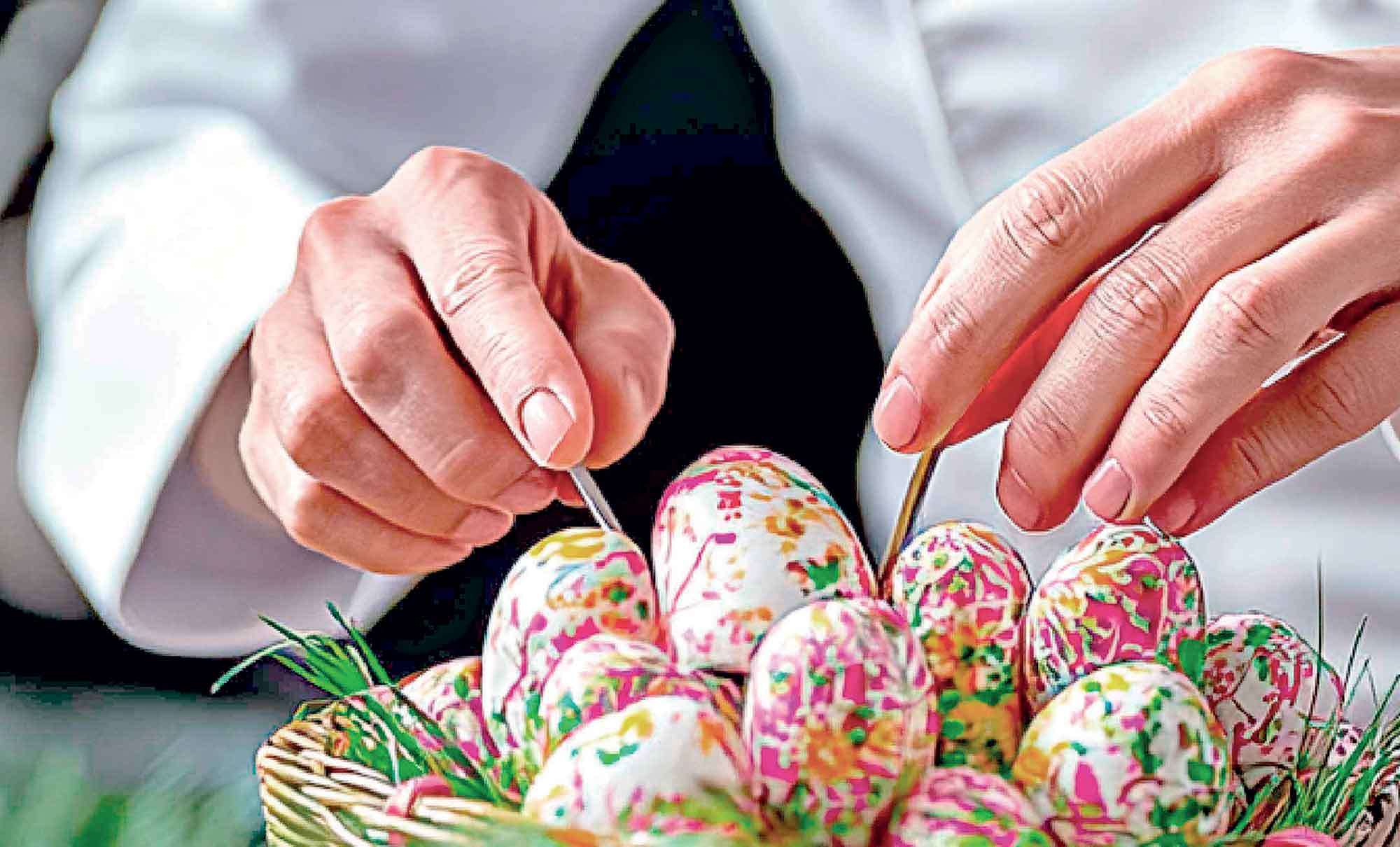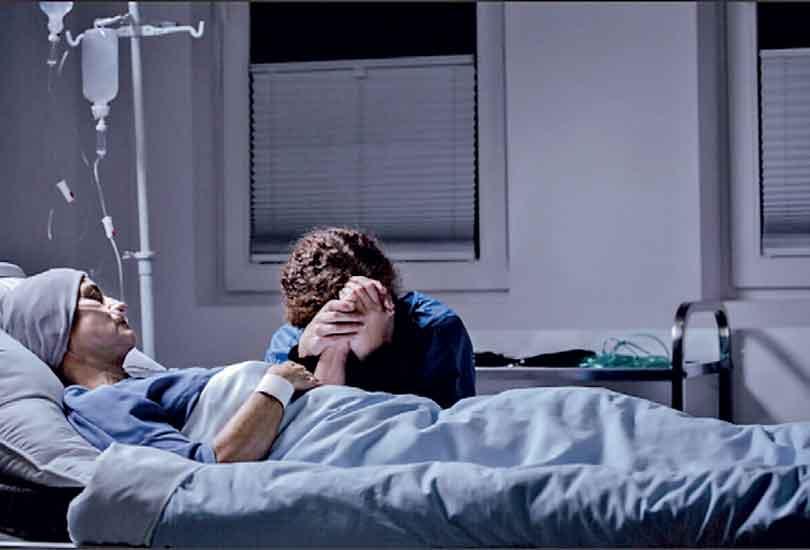
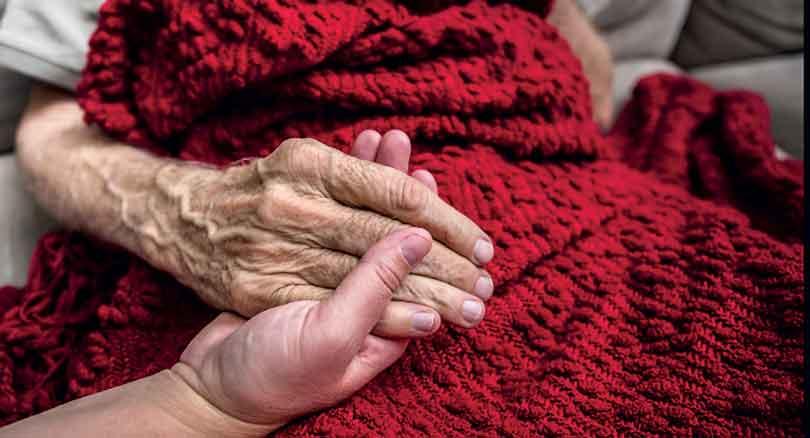
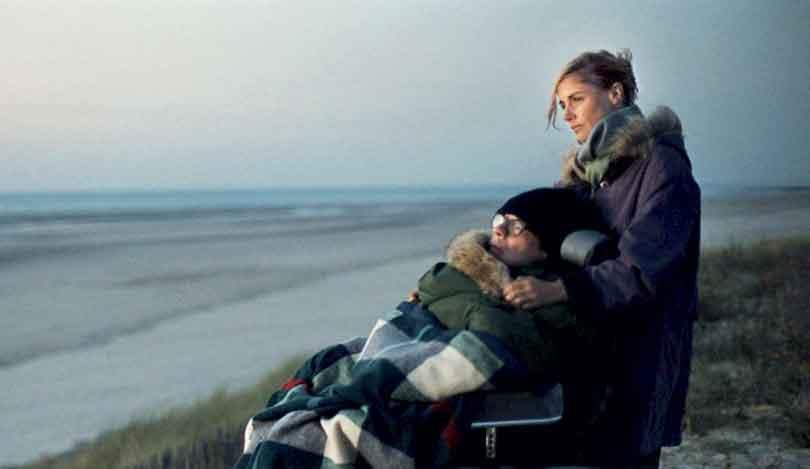
You may be on top of the world today, but what if you have a severe stroke tonight and is severely paralysed and unable to communicate for the rest of your life!
That said, if a terminally ill person, with no quality of life left, chooses to end their life with dignity, and they have the full support of both their family and doctors, it seems like the most compassionate option.
As a 65-year-old I have experienced a rising tide of such discrimination myself and that was just for a mere knee operation!
 Offering assistance and care to someone who may need help is something that many of us shy away from.Organisation, workplaces and even friends are guilty of this. It is bother some and people don’t have the time or the money to waste, or so it seems. These issues are never in the fore front of our thoughts until one of us become the victim of such circumstances. Discrimination against the old and sick are rife, and a person’s worth is measured by how much they can afford so as to carve out a place for themselves in the fast-paced world of today.
Offering assistance and care to someone who may need help is something that many of us shy away from.Organisation, workplaces and even friends are guilty of this. It is bother some and people don’t have the time or the money to waste, or so it seems. These issues are never in the fore front of our thoughts until one of us become the victim of such circumstances. Discrimination against the old and sick are rife, and a person’s worth is measured by how much they can afford so as to carve out a place for themselves in the fast-paced world of today.
In the west, essential care options for the elderly are viewed from a perspective of profit or loss by those who are in charge. When you add disabilities and long-term sicknesses to that mix, many treatment options are seen as non-profitable by hospitals and doctors alike. There seems to be a palpable reluctance by the National Health Service to offer specific treatments to anyone over the age of 70. This lack of care is based on the understanding that it is not ‘value for money’ because they are bound to die soon anyway. As a 65-year-old I have experienced a rising tide of such discrimination myself and that was just for a mere knee operation!
Running parallel to the woeful lack of medical care and concern for those who are old and less well-off, is the raging debate about assisted dying. Having a terminal illness, combined with the possibility of a legally assisted suicide, creates a volatile mix that can lead to unpredictability, especially for those who lack the means to control the outcome. The bill to legalise assisted dying is being supported by those in the medical profession demonstrating that the odds are stacked against the terminally ill who may not want to die despite being at deaths door.
Whilst this debate rages on in Parliament, almost everyone I know has a different opinion about it. Some politicians and religious leaders have warned us of the consequences of going down this very slippery slope. The fact that it has now been approved by a majority in the UK parliament does not prevent it going through many more arduous debates and discussions before it is put to a vote again. Even at this late stage the outcome remains uncertain.
Anyone has a right to decide on how, when and if they want their life to end, especially if they have a terminal illness and if their suffering has reached an almost unbearable point, yet one has to also consider the possibility that they may have been influenced by others to make such a drastic decision so as to terminate their life. These unseen pressures may be from a family member or a close friend who stands to benefit from such a death. What if someone who is asset rich is made to feel that their existence is useless and that they are better off dead? What if someone who is clinically dead is being kept alive on a life-support machine against the orders of doctors, just so that their dependents can benefit from their existence? These are some of the many issues that keeps this debate in dead lock. Several people who are very sick are aware that they are a burden on those who care for them. What if this feeling is intentionally exacerbated by the carers themselves? Then there is the matter of finances, assets, inheritances and written or unwritten wills, leading us to think about the avaricious dependants who may steer a very sick person to request voluntary euthanasia simply for their
own benefit.
Finances play a huge part in such decisions. As such, would it be a complete waste of money prolonging the life of a person who will never be able to function as ‘normal’ again?
Will the money spent on the care of one dying individual diminish every cent a family has collected all their lives? In my opinion these are decisions that are weighed towards the beneficiaries rather than those who are not in a fit state to fight their corner. The choices are difficult and complex.
Though none of us are privy to any life and death decisions made behind closed doors between someone wanting a merciful release and their nearest and dearest, it would be extremely difficult for a judge to ascertain whether such a decision to end a life has been made by that person and that person alone. That said, if a terminally ill person, with no quality of life left, chooses to end their life with dignity, and they have the full support of both their family and doctors, it seems like the most compassionate option.
Michael Anderson’s (1976) science fiction film titled “Logan’s Run” set in the year 2274 (with Michael York and Jenny Agutter)has a storyline that is almost a prediction of what this world is gradually veering towards. The plot of this film is about a couple who try to escape a society which is ruled by a computer which consigns them to death by incineration at the age of 30 in order to curb over population.Even though the storyline of this Sci-Fi fantasy was pretty laughable to us when we were teenagers, the realities of life in our 60’s does not seem too farfetched from this scenario. This will be particularly true if we take into account that this point may be reached well before another 200 years has passed. Who knows what lies in store for the old and the sick in a future world which is dominated by AI, especially when it is likely to be a war zone that is highly overpopulated and environmentally scarred?
As a reader you may ask why I am harping on about this morbid subject of assisted dying and a system hellbent to discriminating against those who are old, unwell, and not financially secure? Here’s why:
You may be on top of the world today, but what if you have a severe stroke tonight and is severely paralysed and unable to communicate for the rest of your life! Would your spouse, partner or family know what your preference for treatments would be? Would you be confident that they will do what is best for you? Or will they do what is convenient for themselves? Would you be happy to be consigned to a care home? The pressure of managing finances (yours and theirs) will almost certainly play an unseen part in the decisions taken once this juncture is reached. I can think of several individuals who will prefer to hold on to the available finances than spend it on treatments that are quite unlikely to enhance or improve a patient’s quality of life.
The comfort of knowing that you will be looked after whatever the circumstances was a privilege that our parents and the previous generations enjoyed. Sadly, that strong sense of responsibility has not passed on to the younger generations who are faced with a different set of challenges in this fast-developing world. Will a child take on the burden of responsibility if a parent gets severely ill? Hiring carers, finding suitable care homes and an ever-increasing financial commitment will surely add to their already existing stress levels. A sickly parent could consider themselves lucky if their child is doing well enough so that their care could be outsourced. But this may not be an option for someone who is single. Would they have the finances to get themselves to a care home or would they decide to end their life instead of depending on the kindness of friends and strangers? These are the instances when you can truly witness the vultures beginning
to hover.
I am aware of several people who have fallen sick and are experiencing hard times. And thus far all the advice from everyone surrounding them, including many who benefited hugely from knowing them, is to sell of their assets and get themselves in to a carehome! In other words, they are saying, ‘if you have the funds, pay for your own care and disappear!’
Think of Jean-Dominique Bauby (the former editor-in-chief of French Elle magazine) whose life changed forever when a devastating stroke left him with locked-in syndrome, a condition that paralyzed his entire body except for his left eyelid. The film “The Diving Bell and the Butterfly” charts his journey from the day of his paralysis. His story was made into a bestselling book, and he only communicated with his biographer by blinking one eyelid. He was a privileged person who knew many influential people that would help him through what was an unimaginably awful period even though nothing could be done about improving his condition. But what if it someone is a bus driver or a middle-income earner who suffers the same fate? Will the local hospital have the facilities to treat them? Will the care and treatment given be free of charge? Will there be people clamouring to care for them? Will those people or their families have the finances to support and aid their survival? Or will they decide to opt for assisted dying to relieve the pain and stress on both parties?
Consider all this happening to you while you are paralysed and unable to say anything
yet your mind is active, and you can hear the discussions taking place around you!
Discussing the possibilities of what you would wish for in the event that a life changing illness affects you in the future, is a must. These conversations have to be with someone you trust implicitly knowing full well that your decisions and instructions will be honoured. Some countries have documents that can be signed so that your wishes are legally enshrined. In the event such forms are not available having these rather macabre discussions with family and friends while witnesses are present may put into place some safeguards. Or so we can hope.
Tomorrow is unpredictable– it may either bring you joy and abundance or it may lead to an encounter with the grim reaper who beckons you closer to the inevitable. As life may change for the worse in a blink of an eye, I urge you to have these conversations before it’s too late.




